HSE University Experts Present Report on ‘Africa: Development Prospects and Recommendations for Russian Policy’
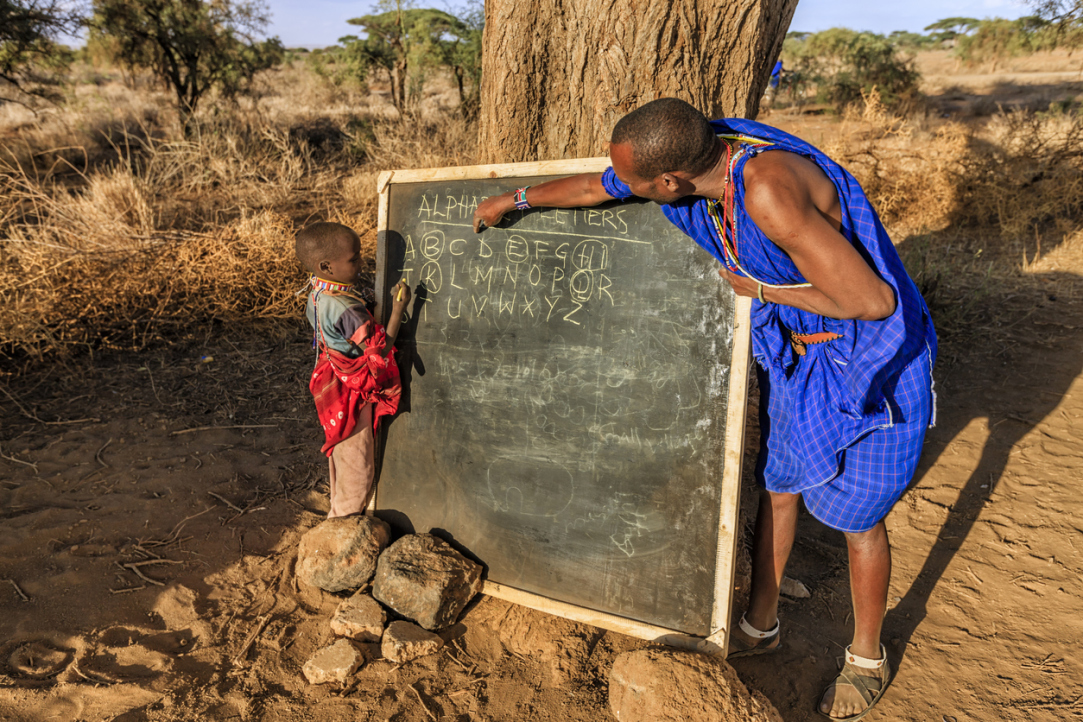
The report was prepared by a group from the HSE University Centre for African Studies and the Centre for Comprehensive European and International Studies of the Faculty of World Economy and International Affairs. The authors highlight that Russia is invested in the future development of the continent and is open to dialogue with all African nations. The report names the most economically promising fields to be energy, digital technologies, and agriculture.
On November 10, the TASS news agency hosted a press conference devoted to the publication of a report entitled ‘Africa: Development Prospects and Recommendations for Russian Policy.’ The report was prepared by experts from the HSE Situational Analysis Programme, which is organised with the Russian Ministry of Foreign Affairs with support from the Russian State Duma Committee on International Affairs, the Public Council on Foreign and Defence Policy, and the Russia in Global Affairs journal. The head of the Situational Analysis Programme is Sergey Karaganov, Dean of the Faculty of World Economy and International Affairs at HSE University.
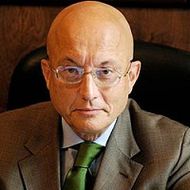
Sergey Karaganov
Presenting the report, Mr. Karaganov noted the significant contributions made by diplomats and other specialists working in Africa in preparing the research. ‘We depart from official conceptions, and it makes for good reading. The report will be of use to a lot of people—it outlines the situation in Africa and the opportunities for Russia in the continent,’ he explained.
Mikhail Bogdanov, Deputy Minister of Foreign Affairs of Russia and Special Presidential envoy for the Middle East and Africa, said that the report was ‘a comprehensive and high-quality work on the position of Africa on the world stage and the relationships between Russia and African nations.’ Mr. Bogdanov highlighted the importance of involving independent specialists in the development of foreign policy, adding, ‘I look forward to further cooperation between the Ministry of Foreign Affairs and HSE University.’
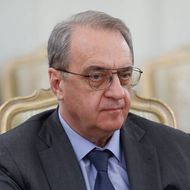
Mikhail Bogdanov
Igor Morozov, member of the Federation Council and Chairman of the Coordinating Committee on Economic Cooperation with Africa, considers the report’s creativity to be an important element, as well as a reflection of the perspectives of businesses, people who know Africa, and those who want to work there. ‘It’s exactly what our civil servants and state bodies need to see,’ he said.
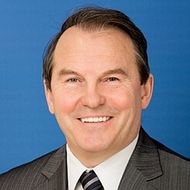
Igor Morozov
Andrey Maslov, head of the group behind the report and Director of the HSE University Centre for African Studies, stressed that the main aim of the research was to analyze international experience of working in Africa. ‘We examined what our partners and competitors are doing to see what works and what doesn’t,’ explaining that Russia and African countries share common interests in the country’s future development, which is advantageous to Russia. Building cooperation will require the establishment of institutional structures, policy discussions between expert and working groups, the state and business organisations, and recommendations for areas of industry cooperation with the African Union.
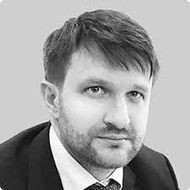
Andrey Maslov
It is important to establish a bilateral approach to energy, digital technologies, and agriculture, and to help solve the issues faced by Africa (energy poverty, drought) and Russia. The government should develop policies aimed at providing support and facilitating the transfer of skills, said Mr. Maslov. He added, ‘This is a case of teaching someone to fish, not just giving them fish.’
Dmitry Suslov, Deputy Director of the HSE University Centre for Comprehensive European and International Studies, said that Africa is becoming a more valuable partner to Russia than countries such as Turkey. He also explained that Russia’s cooperation with African countries does not mark a return of the Soviet approach, where involvement in the continent was part of broader Cold War strategy and as a platform for confrontation with the US. ‘Today, Russia participates in dialogue with everyone. We do not divide African countries into socialist ones or capitalist ones,’ he said.
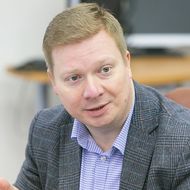
Dmitry Suslov
Mr. Suslov believes that Russia can benefit from such cooperation both politically, by being involved in the creation of new players on the international stage, as well as economically, by opening up a new market for Russian goods and services. In his view, Russia has considerable competitive advantages in Africa. Unlike many western countries, Russia did not engage in colonial activities in the continent, and in fact helped African countries to establish their economies in the post-colonial period.
Russia truly supports African integration, not using African countries as satellite states. We have something to contribute to the modernisation of their security forces and armies
Potential obstacles to the establishment of cooperation with African nations include insufficient diplomatic representation, limited financial resources, and a lack of direct communication with many countries in the continent.
Oleg Ozerov, Ambassador-at-Large and Head of the Secretariat of the Russia-Africa Partnership Forum, said that the report and the discussion that took place during its preparation are useful for advancing Russian relations with Africa, and that he plans to use its recommendations in preparing future Russia-Africa summits. ‘Without research and input from leading specialists, we can’t hope to develop comprehensive solutions and breakthrough ideas,’ said Mr. Ozerov.
At the end of the press conference, TASS First Deputy Director General Mikhail Gusman said, ‘[the report is] a serious and in-depth work with both research and applied significance. It will be a core reference document for Russian diplomats working in this field.’
See also:
‘A Bridge Connecting Russia and Africa’
The HSE Centre for African Studies has marked its fifth anniversary. It was established to support Russian companies and government bodies in their engagement with countries across the continent and, over the years, has proved its effectiveness and uniqueness. A ceremonial event to mark the centre’s anniversary was held at HSE’s Cultural Centre.
Showcasing the Diversity of African Heritage at HSE University–St Petersburg
On April 26, HSE University–St Petersburg held the African Festival. Currently, there are more than 100 students from 20 African countries at the university, most of whom showed up for the first festival of its kind this April. HSE's African students proudly presented their traditions, cultural values, vibrant dances, and unique landmarks of their countries. It was an unforgettable journey into the colourful culture and multifaceted heritage of Africa.
HSE Days in Ghana: How the University Attracts Talents and Expands Cooperation with Africa
In March 2025, HSE Days took place in the Ghanaian capital of Accra, the cultural hub of Kumasi, and the Bono East region. Representatives of the university awarded participants of the HSE International Olympiad (HSE INTO 2025) and spoke to local school pupils and university students about educational opportunities, scholarship programmes, and application pathways to HSE University.
HSE Presents an Analytical Handbook on Africa for African Leaders
The HSE University Centre for African Studies has presented an English-language expert-analytical handbook titled ‘Africa 2025: Prospects and Challenges.’ For the first time, Russian experts have prepared a comprehensive work aimed at an African audience rather than Russian readers. The handbook incorporates a significant amount of new data and introduces new approaches for assessing development prospects. The presentation took place in Sochi on November 9, 2024, during the First Ministerial Conference of the Russia–Africa Partnership Forum.
HSE Experts Help to Implement Science and Technology Foresight in Africa
The population of African countries is growing so fast that the continent is likely to play a significant role in global development. However, the socio-economic situation in African States remains dramatic. Access to high-quality education, the development of science and high technologies are crucial in addressing these challenges. Professor Alexander Sokolov, Head of the UNESCO Chair on Future Studies at HSE University, spoke at the International Forum of UNESCO Chairs and Partners ‘Transforming Knowledge for Africa’s Future.’ The event took place in Addis Ababa, Ethiopia.
Keeping Dialogue Open with Africa: Rectors of Regional Universities Visit HSE
At the end of April 2024, HSE University hosted an international conference ‘Export of Russian Education to Africa: Challenges and Opportunities.’ The event was attended by leaders of universities from Mali, Burkina Faso, Burundi, Niger, and Guinea. Together with their Russian counterparts from government bodies, scientific and higher educational institutions, they outlined paths for the development of humanitarian relations and agreed on possible cooperation in the face of a changing world order.
HSE Hosts Round Table ‘Africa and BRICS: Reflections and Prospects’
On April 15, 2024 HSE University hosted a roundtable discussion ‘Africa and BRICS: Reflections and Prospects.’ The event featured leading experts from the South African Institute of International Affairs (SAIIA) Steven Gruzd and Gustavo de Carvalho and was moderated by HSE Vice Rector and Head of the BRICS Expert Council–Russia Victoria Panova.
‘We Have Promising Opportunities with Africa, and It Is Important to Foster Cooperation’
A Strategic Session focusing on cooperation between Russia and African countries in the sphere of higher education was held at HSE University's building on Pokrovsky Bulvar. The event was attended by representatives of HSE University, rectors of other Russian universities, and ambassadors and ministers of higher education from several African states.
Russia and Africa: Sharing Knowledge in Digitalisation
A school focusing on the digitalisation of public administration for civil servants from African countries was held in Moscow in December 2023. The school proved the high demand for Russian training programmes — representatives of 23 countries and 3 international organisations received certificates following advanced training.
Russian Government and HSE University to Help with Digitalisation of African Countries
The Russian-African Competence Transfer Programme in the Field of Public Administration Digitalisation in African Countries, which is being implemented by HSE University's Centre for African Studies, will be partially state-financed. The subsidy will be provided by the Russian government in accordance with the corresponding order signed on September 21.


